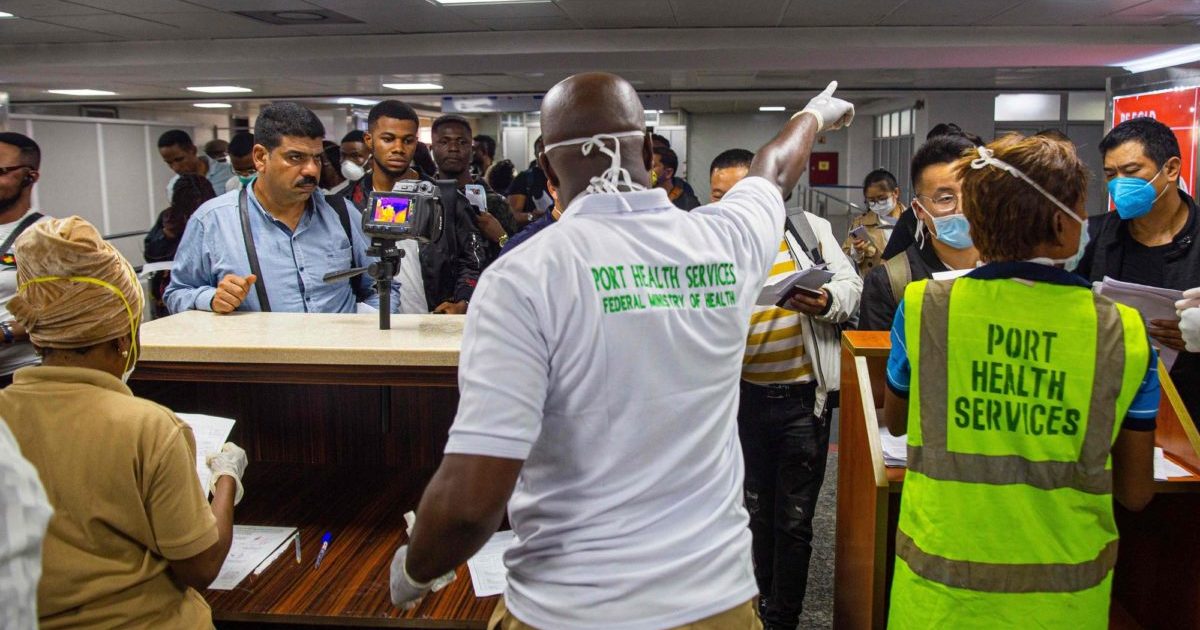- The WHO advises against travel restrictions amid the coronavirus outbreak. But many countries are ignoring its advice.
- Coronavirus cases are growing in Africa as international travelers bring the disease to Nigeria and other ill-prepared countries.
- African leaders need to ignore the WHO’s guidelines and restrict foreign travel before they import a coronavirus catastrophe.
On February 27, Nigeria declared the first case of coronavirus in Sub-Saharan Africa. The patient, a middle-aged Italian man, traveled from Milan, Italy to Lagos, Nigeria before he fell ill and was quarantined after testing positive for the novel disease.
The man traveled to Nigeria on a Turkish Airlines flight that routed through Istanbul.
Later, Senegal, a popular tourist destination in West Africa, recorded multiple cases of Covid-19 back to back — all from tourists.
Senegal’s coronavirus cases come from unexpected places. The first patients were French tourists who entered the country through Senegal Airlines. And the most recent case was a British national who flew to the country from London. The British case is perplexing because London has only recorded 6 cases of Covid-19, and isn’t considered a hotspot for the infection.
Bill Gates Predicts Coronavirus Could Kill 10 Million Africans
Bill Gates as a long history of making bombastic claims about Africa, so his latest projections — as jarring as they are — should come as no surprise. His statements should also be, perhaps, taken with a grain of salt.
The American billionaire believes the coronavirus epidemic could overwhelm Africa’s healthcare systems and lead to the deaths of 10 million people on the continent. He believes the novel virus could hit places like Nigeria even worse than it has hit China.
The Microsoft founder said the following at a scientific society meeting in Seattle, Washington:
This is a huge challenge. We’ve always known that the potential for either a naturally caused or intentionally caused pandemic is one of the few things that could disrupt health systems, economies and cause more than 10 million excess deaths.
This disease, if it’s in Africa, is more dramatic than if it’s in China.
But now, two weeks after Gates made his shocking projection, Covid-19 has already infected 32 people in his hometown of Seattle — which is more than the entire continent of Africa. Why? The answer may lay in travel volume.
Travel Volume to Africa is Still Relatively Low
Despite growing steadily in recent years, Africa captures a tiny fraction of the global tourism market. Much of this is due to political instability in large population centers like Nigeria which is rife with terrorism and lack of electricity.
Africa’s low tourist arrivals seem to be the main reason why infection rates are so low in the continent.
But it could only take one infected individual for cases of Covid-19 to explode and create another massive hotspot like what happened in South Korea. Like South Korea, Africa is also home to many large, cult-like churches that could rapidly spread the virus to hundreds of people.
Many of these churches also claim to be able to heal illnesses — so Africa could face a situation where sick people go to churches instead of hospitals leading to the uncontrollable spread of the disease.
The only way to fight Covid-19 in Africa is to prevent it from ever arriving. And that means countries like Nigeria needs to ignore the WHO’s advice and ban international flights.
Airlines are Still Bringing Passengers from Hard-Hit Areas Into Africa.
Ethiopian Airlines, Africa’s largest carrier, is still running direct flights from some of the areas hardest-hit with the coronavirus in China. They justify this controversial decision by pointing to remarks from the World Health Organization.
CEO Tewolde Gebremariam cites the WHO’s recommendation as a justification for his company’s decision.
We respect the call by the World Health Organization for countries not to close borders to travelers from China.
Ethiopian operates many international flights. And suspending flights only to China won’t be an immunity to prevent the spread of the disease. The only solution is to make the necessary care for passengers and staff.
But dozens of countries, including the United States, Japan, and Russia have ignored the WHO’s advice to great effect.
The United States, which was early to ban flights from China, only has 159 confirmed cases of Covid-19. Countries like Japan and Australia have also spared themselves from massive Covid-19 outbreaks due to targeted and effective flight bans.
On the other hand, Europe, which has been lax about travel controls, has seen its Covid-19 caseload explode with Italy becoming a major epicenter of the virus with a staggering 3,089 infections.
Africa Needs to Ban Flights From Hard-Hit Areas Before it’s Too late
If African governments don’t move to restrict travel from hard-hit areas, the continent could be on the verge of a coronavirus catastrophe. Ethiopian Airlines should be forced to stop its China flights.
And as hotspots develop in Europe and the Middle East, African governments should consider banning travel from those areas as well.
The WHO’s advice has become a disaster for many of the countries that followed it. Africa is an example that lower travel volume slows the spread of Covid-19. Africans need to double up on this winning formula before Bill Gates’s terrifying projections come to fruition.
Disclaimer: The opinions expressed in this article do not necessarily reflect the views of CCN.com.
This article was edited by Samburaj Das.




